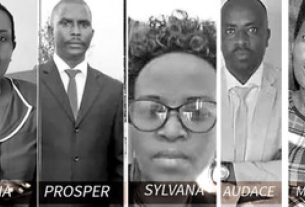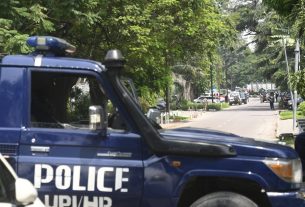During a televised parliamentary budget session on Wednesday, February 22, Japan’s Prime Minister Fumio Kishida said his government will “appropriately handle” a development aid project in Myanmar that is benefiting the country’s abusive military. Yoshimasa Hayashi, the Japanese foreign minister, echoed the prime minister’s public pledge to take appropriate action.
The leaders’ comments came in response to questions from an opposition politician about Japan’s Bago River Bridge Construction Project, being built partly by Japanese construction giant Yokogawa Bridge Corp. In March 2021, Myanmar Now reported that a steel mill owned by the military-owned conglomerate Myanmar Economic Corporation (MEC) was supplying steel for the project and “profiting enormously.” Financial transactions analyzed by Human Rights Watch show that from July 2022 to January 2023, Yokogawa Bridge Corp. transferred around US$2 million to MEC for the project, with United States government approval.
MEC generates vast revenue through businesses in sectors including manufacturing, mining, and telecommunications, according to a 2019 report by the United Nations-backed Independent International Fact-Finding Mission on Myanmar. The US, United Kingdom, European Union, Canada, and Australia have sanctioned MEC and Myanmar’s other military conglomerate, Myanmar Economic Holdings Limited, for their role in generating significant revenues that help fund military abuses.
Since the February 2021 military coup, Myanmar’s military has been responsible for widespread and systematic human rights abuses, including extrajudicial killings, torture, and indiscriminate attacks on civilians that amount to crimes against humanity and war crimes.
Prior to the coup, Myanmar’s security forces committed crimes against humanity and genocidal acts against the Rohingya Muslim minority in Rakhine State, forcing thousands to flee to Bangladesh, where about 900,000 Rohingya are currently living in overcrowded camps. An estimated 600,000 Rohingya remain in Rakhine State, where they are subject to persecution and violence, confined to camps and villages without freedom of movement, and cut off from access to adequate food, health care, education, and livelihoods.
If Japan’s prime minister and foreign minister are serious about “swiftly restor[ing] Myanmar’s democratic political system,” they should fulfill their own pledge and take concrete action. This means stopping payments to MEC, suspending all non-humanitarian aid to Myanmar, and imposing targeted economic sanctions on military leaders and military-owned conglomerates.



